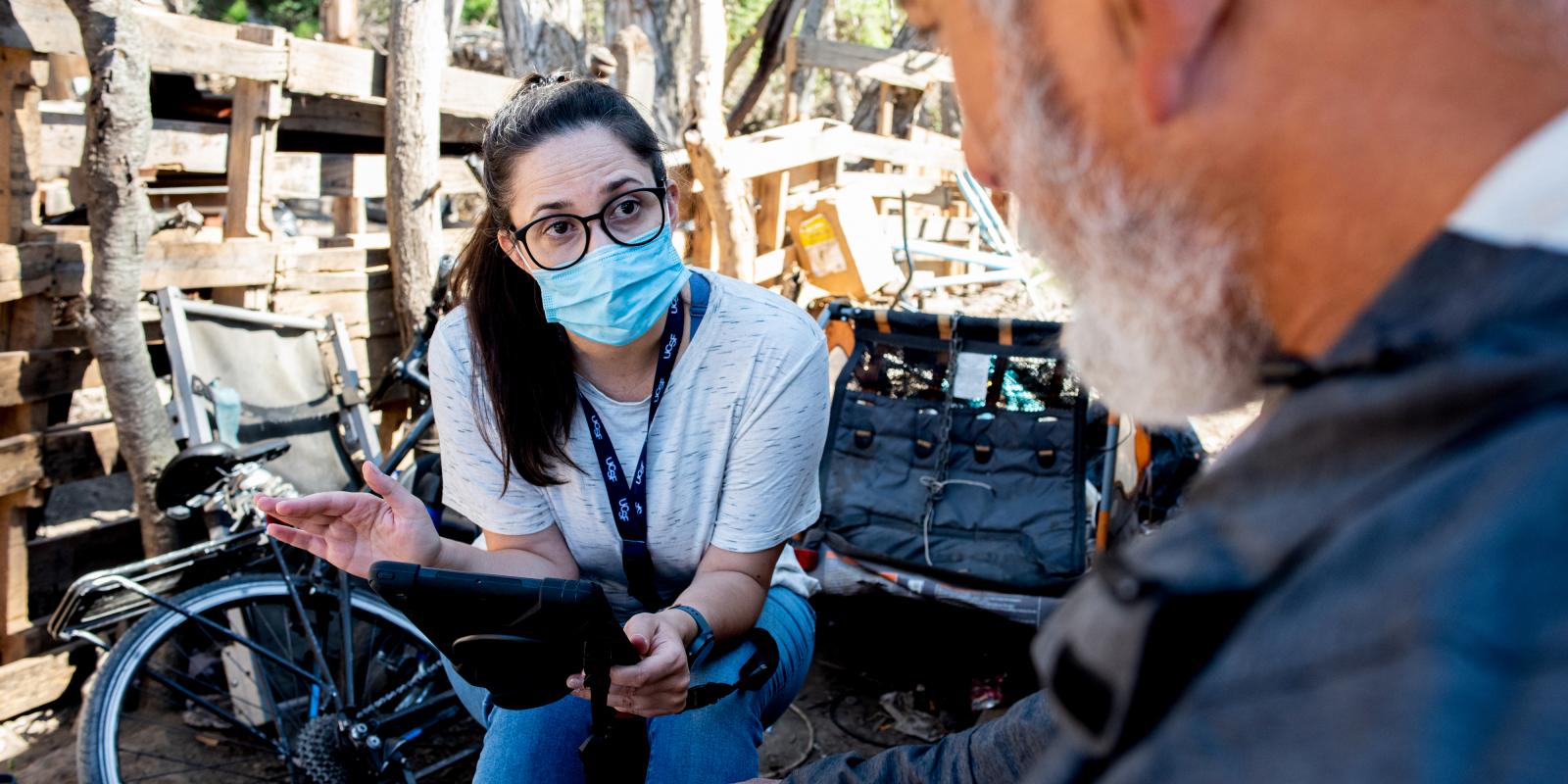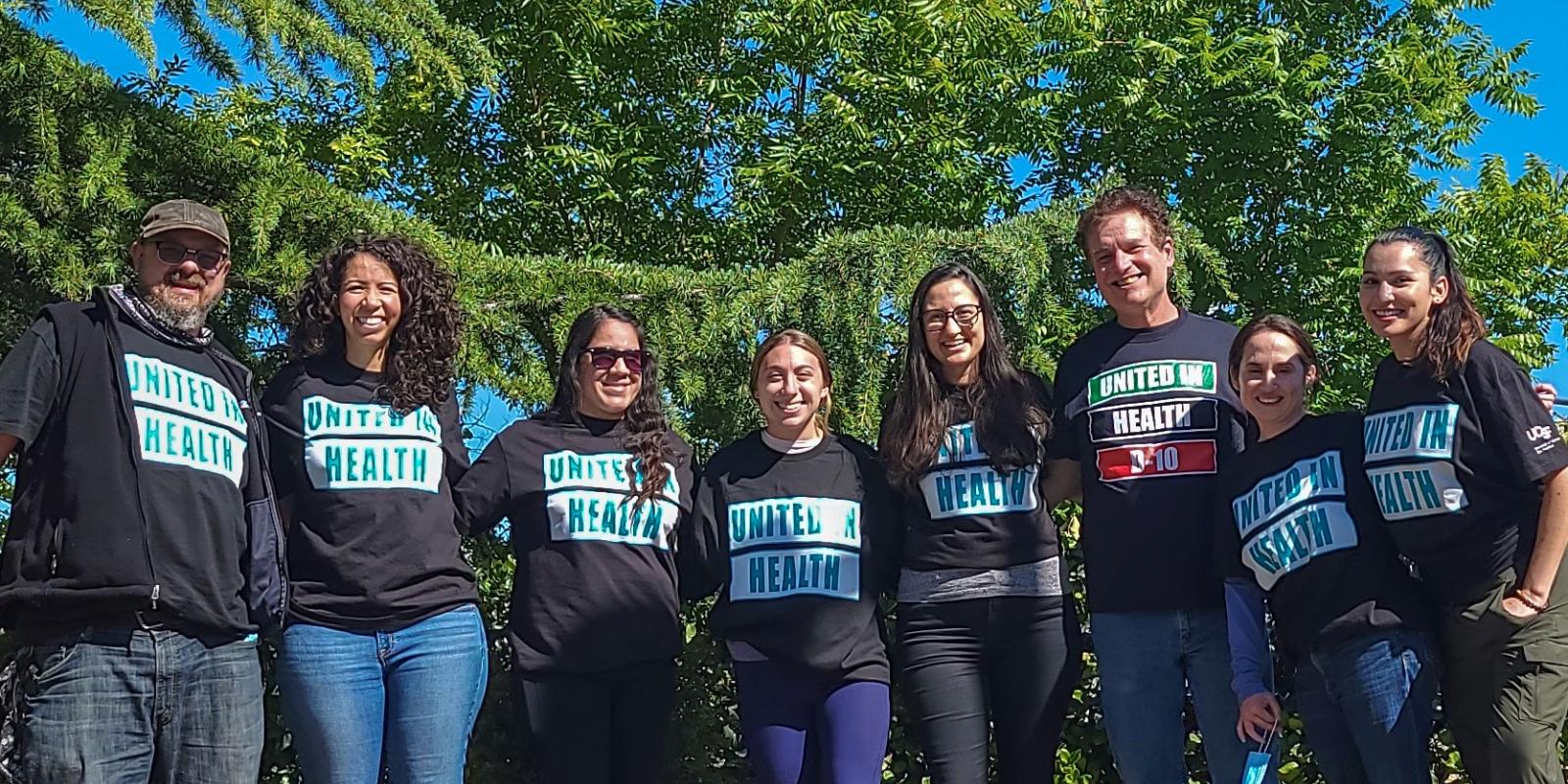Background
California Statewide Study of People Experiencing Homelessness
The UCSF Benioff Homelessness and Housing Initiative recently completed a new study to better understand homelessness across the state of California. The California Statewide Study of People Experiencing Homelessness (CASPEH), conducted by the UCSF Benioff Homelessness and Housing Initiative (BHHI) with financial support from UCSF BHHI, Blue Shield Foundation of California and the California Health Care Foundation, aims to inform policies, programs and perspectives in order to prevent and end adult homelessness in California.
Meet the Community Advisory Boards
UCSF BHHI assembled three community advisory boards to collaborate with our researchers throughout the duration of the California Statewide Survey of People Experiencing Homelessness. These community advisory boards acted as our trusted advisors through each stage of the research and analysis process.
Lived Expertise Advisory Board
Comprised of people with current or past experiences of homelessness living across the state of California.
Learning Collaborative Advisory Board
Made up of representatives—practitioners, service providers, policymakers, and community members—from across the state.
Policy and Practice Advisory Board
Comprised of partners from local, state, and national government as well as representatives from service providers and advocacy groups.
Statewide Study FAQ
The California Statewide Study of People Experiencing Homelessness (CASPEH) aims to inform policies, programs, and perspectives to prevent and end adult homelessness in California. The CASPEH was conducted by the UCSF Benioff Homelessness and Housing Initiative (BHHI) with financial support from UCSF BHHI, Blue Shield Foundation of California, and the California Health Care Foundation. Conducted at the request of California Health and Human Services Secretary Mark Ghaly, the CASPEH provides data to complement, but not replicate, data from the Point-in-Time count, Homeless Management Information System, and Homeless Data Integration System.
When Did the Study Take Place?
We launched our study in October of 2021 and concluded data collection in November of 2022.
Where Did the Study Take Place?
We chose 8 counties (and expanded one to a two-county cluster) that allowed us to draw statewide estimates. We chose these counties to represent California’s diversity: urban and rural, Northern and Southern, Coastal and Inland. We used venue-based and respondent-driven sampling approaches to ensure our sample represents all homeless adults in California
Who Was Surveyed?
We conducted surveys with more than 3000 participants to draw reliable estimates. All adults experiencing homelessness, whether as single adults or in families, were eligible. We conducted interviews at encampments, emergency shelters, safe parking sites, free meal programs, showers, and community gathering places through each county. Surveys were administered in English and Spanish.
Who was Interviewed?
We developed a series of seven qualitative substudies, which staff administered in parallel with survey data collection. The overall purpose of these studies was to elicit additional contextual, experiential, and attitudinal information drawn from several of the survey’s key domains including:
- Behavioral health
- Homelessness precipitant
- Incarceration
- Intimate partner violence
- Rehousing
- Black Californians experiences of homelessness
- Latino/x Californians experiences of homelessness
What Role Did Local Communities Play?
We convened three community advisory boards (CABs) who provided input into all aspects of the study. The CABs include: (1) a Lived Expertise Advisory Board comprised of people with lived experience of homelessness from throughout the state; (2) a Policy and Practice Advisory Board made up of local, state, and national representatives of homeless system practitioners and policymakers; and (3) a Learning Collaborative of representatives from the 8 participating counties. These three CABs offered ongoing guidance on data collection tools; sampling; data interpretation; and dissemination of the study findings.
To design and conduct each study, UCSF BHHI faculty and staff worked alongside leaders and community members in each county to design data collection efforts to ensure we connected with even the most hard-to-reach populations.
We also hired community workers with lived experiences of homelessness in each county to accompany our staff in the field.
What Kind of Questions Did We Ask?
The questionnaire asks about precipitants of homelessness; alcohol, drug, and mental health issues; the personal impact of COVID-19; current income and benefits; current and prior intimate partner violence exposure; housing and health service utilization; and respondents’ perceptions of interventions that would help them achieve stable housing. Based on their responses to the questionnaire, we invited certain participants to complete a qualitative interview to describe their experiences and perspectives in greater depth.
How Will The Data Be Used?
The findings are being used to provide a statewide picture of homelessness, increase our current knowledge, and fill existing knowledge gaps about unsheltered populations and homelessness, examine the effects of COVID-19 on homelessness, and inform local and state policy decisions. UCSF BHHI will disseminate these findings through presentations, reports, policy briefs, editorials, and academic journal articles. While we will not publicly identify county-level data, we will return the data back to each county to inform internal planning and policies.
Questions?
Margot Kushel, MD
Director, UCSF Benioff Homelessness and Housing Initiative and Principal Investigator
Email:
Znetbg.Xhfury@hpfs.rqhude.fscu@lehsuK.tograM
Marc Dones
Policy Director, Benioff Homelessness and Housing Initiative
Email:
Znep.Qbarf@hpfs.rqhude.fscu@senoD.craM


